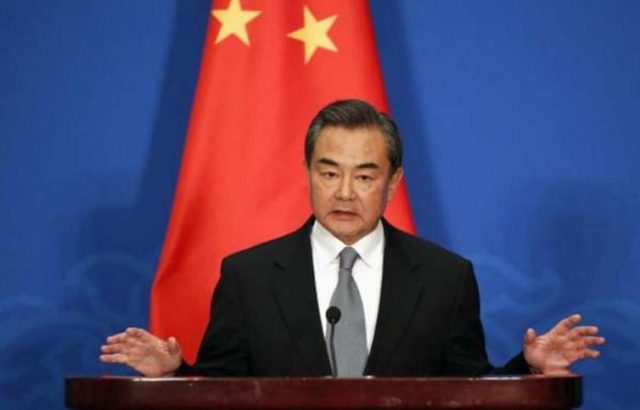The new sanctions against North Korea approved with the UN Security Council are not an objective in themselves, they are called to urge the parties return to the table of the conversations and to reduce the danger of new tensions on the Korean peninsula, Chinese Foreign Minister Wang Yi said.
“Sanctions are necessary, but they are not the final objective, the objective is to return to the dialogues to solve the nuclear problem of the Korean peninsula and through dialogue find the conditions for a definitive solution and achieve denuclearization and stability Durable,” he said.
The Chinese Foreign Minister stressed that the new resolution includes two elements, focusing on the fact that North Korea continues to violate the decisions of the UN Security Council in making launches, and that in response to this a corresponding reaction of the international community.
“The purpose of this response is to seek to contain North Korea’s nuclear development more effectively,” he said.
Wang Yi stressed that “on the other hand, a very important component of this resolution lies in the call to reinstall the six-party talks, during which special attention must be paid to the diplomatic and political means to solve the nuclear problem of the peninsula by peaceful means and to avoid the tensions and the worsening of the situation “.
“These two aspects are extremely important and cannot be underestimated,” he concluded.
This Saturday, the UN Security Council unanimously approved the resolution tightening sanctions on North Korea.
The United States that submitted the resolution estimates that the measure will reduce North Korea’s annual revenues of around $3 billion by a third.
Tension around the Korean peninsula was on the rise after the announcement that Pyongyang was testing an intercontinental ballistic missile on July 28, the second in that month.
According to the official statement, the missile flew about 998 kilometers, reaching an altitude of almost 3,725 kilometers, and fell in the East Sea (Sea of Japan) about 47 minutes after the launch.
Shot from a standard angle, a missile of that range would have threatened Los Angeles, Denver or Chicago, according to US experts.
The Russian Defense Ministry has meanwhile maintained that it was a mid-range missile, as well as the previous launch, on 4 July.
With Friday’s test, the total number of ballistic missile tests North Korea has made so far this year, including two failed launches in April, is 11.
In 2016, Pyongyang carried out more than 20 similar tests, in addition to the fourth and fifth nuclear tests, despite the prohibitions of the UN Security Council.










